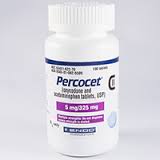
There is going to be a lot of speculation about the cause of death for the artist, Prince. He died April 21st, at age 57. Found unresponsive, with no obvious signs of trauma speculation has turned to Percocet.
People Magazine speculated that he might have been taking Percocet, or some opioids, to relieve pain from chronic injuries from his shows. The difficulty with that speculation is there was no obvious signs that he was hurting in any of his joints.
Percocet is a poor choice for chronic pain. Yet, people with chronic pain are often prescribed narcotics. This leaves the patient with two problems: chronic pain and addiction to narcotics. The patient is now as dependent upon the narcotic as any addict, in fact, they are addicted.
Since 2000 the deaths from narcotics has increased over 200%. In 2013 alone the death rate from narcotics increased 14%. From 2000-2014 nearly half a million people died from drug overdoses. In 2014 there were 1.5 times more drug overdose deaths than deaths from motor vehicle crashes.
 While some of those deaths are from heroin use, there is no doubt that a portion of those heroin users were secondary to addiction to prescription drugs of Percocet, Vicodin, and other narcotic pain relievers. Patients who cannot get another prescription for narcotics find they can obtain heroin for less money, without a prescription, and easily on the street. The difference between heroin and Percocet are minor in terms of effect, and what they do. Both drugs require increasing amounts over time to achieve affect, neither heroin or Percocet are effective at relief of chronic pain, and both drugs can easily be overdosed into respiratory failure.
While some of those deaths are from heroin use, there is no doubt that a portion of those heroin users were secondary to addiction to prescription drugs of Percocet, Vicodin, and other narcotic pain relievers. Patients who cannot get another prescription for narcotics find they can obtain heroin for less money, without a prescription, and easily on the street. The difference between heroin and Percocet are minor in terms of effect, and what they do. Both drugs require increasing amounts over time to achieve affect, neither heroin or Percocet are effective at relief of chronic pain, and both drugs can easily be overdosed into respiratory failure.
Physicians need to begin the process of treating patients from narcotics addiction for chronic pain. We need to develop better treatments for narcotic dependence, and increase our ability to treat these addictions. Any physician with a DEA license can prescribe narcotics, like Percocet, but few are trained in how properly to treat with these medications, and how to help patients get off the narcotics.
REFERENCES:
Increases in Drug and Opioid Overdose Deaths — United States, 2000–2014. Morbidity and Mortality Weekly Report. January 1, 2016/ 64(50); 1378-82. http://www.cdc.gov/mmwr/preview/mmwrhtml/mm6450a3.htm
